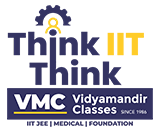Revamped CBSE Syllabus for Classes 3 and 6: A Step Towards Holistic Education
 Posted On
Posted On
89 total views, 1 views today
The Central Board of Secondary Education (CBSE) syllabus revision for classes 3 and 6 has been announced by the National Council of Educational Research and Training (NCERT), signifying a noteworthy advancement in India’s educational system.
This revision aligns with the recently introduced National Curriculum Framework for School Education (NCF-SE) 2023 and is set to come into effect from the academic session 2024-25.
The decision to update the syllabi stems from a concerted effort to adapt to the evolving educational landscape and cater to the diverse needs of students. In a letter addressed to the CBSE, the NCERT highlighted the necessity of informing school authorities, teachers, and parents about the impending changes. These revisions are not merely cosmetic; they necessitate adjustments in school timetables to accommodate the updated curriculum effectively.
Collaboration lies at the heart of this initiative, with NCERT, CBSE, Kendriya Vidyalaya Sangathan (KVS), Navodaya Vidyalaya Samiti (NVS), and the Department of School Education and Literacy joining forces to realize the objectives outlined in the National Education Policy (NEP) 2020. The collective aim is to foster a dynamic learning environment that nurtures holistic development and equips students with essential skills for the future.
A key aspect emphasized in the notification is the importance of playful and activity-based learning, especially in the foundational years of education. The curriculum overhaul seeks to integrate various facets of learning, including arts, physical education, well-being, and skill development, alongside traditional subjects like language, mathematics, science, environmental education, and social sciences.
As part of this paradigm shift, new textbooks will be introduced to complement the revised syllabi. These textbooks are meticulously crafted to engage students and stimulate their curiosity, fostering a deeper understanding of concepts and encouraging critical thinking.
In light of these developments, it is imperative for the CBSE to proactively communicate the changes to all stakeholders, including school heads, teachers, and parents. Moreover, there is a need to devise strategies that prioritize experiential learning and create an inclusive educational ecosystem where every child can thrive.
The revised syllabi for classes 3 and 6 signify a departure from the rote-learning mentality towards a more holistic and child-centric approach to education. By embracing innovation and incorporating diverse learning experiences, the education system is poised to empower students to become lifelong learners, equipped to navigate the complexities of the modern world.
Final Thoughts
In conclusion, the revision of the CBSE syllabus for classes 3 and 6 heralds a new era in Indian education—one characterized by flexibility, inclusivity, and innovation. As we embark on this transformative journey, let us reaffirm our commitment to providing every child with an education that not only equips them with knowledge but also nurtures their innate talents and abilities. By working together, we can create a more promising future for the coming generation, one in which every child has the chance to reach their full potential and prosper.



